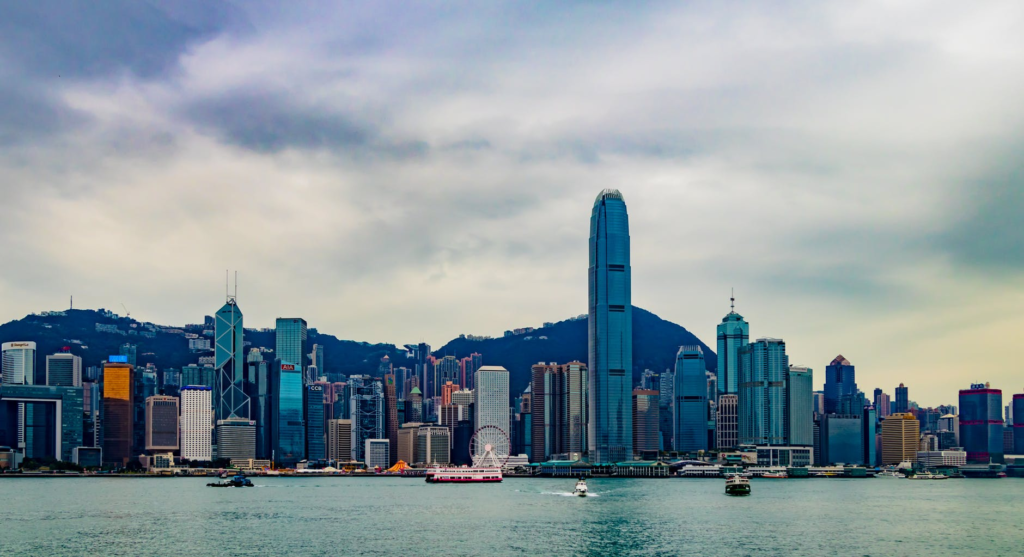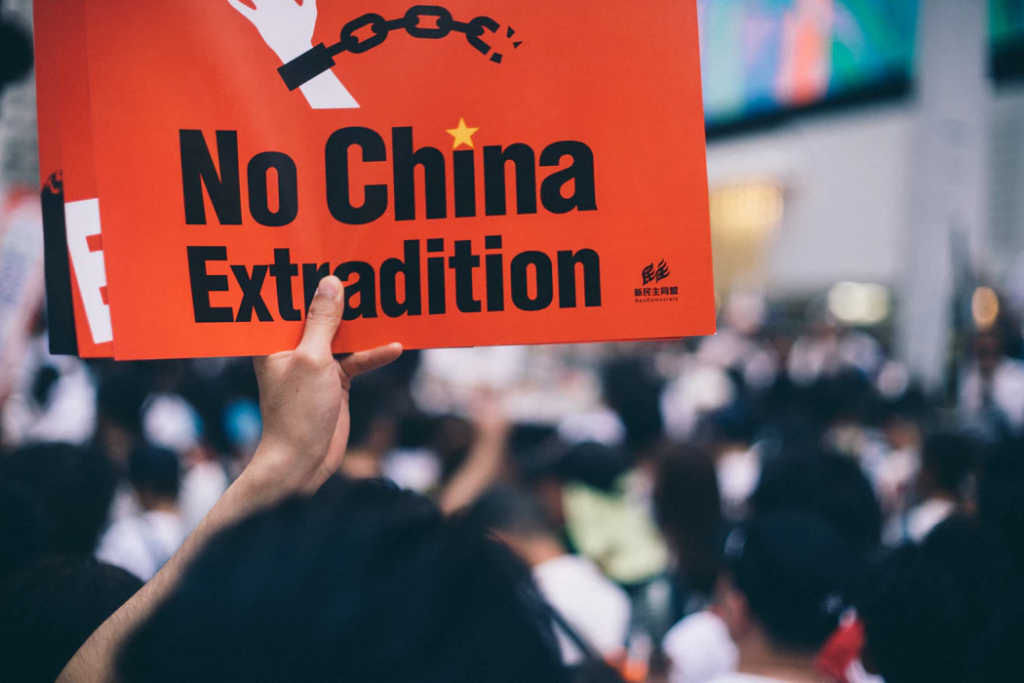The relationship between Hong Kong and mainland China has always been tenuous to say the least. This tension has come to a head in 2019, with massive protests across Hong Kong causing political and social unrest in the country. The situation in Hong Kong is complex, but could it also lead to the country’s next recession? Or will these protests be a blip on the radar of history.

What’s Happening?
The story of the Hong Kong protests dates back to February, when the territory’s Secretary Bureau began working on a bill to amend its extradition laws. In the proposed changes, extradition from Hong Kong would be allowed depending on the case to other countries, including mainland China.
The following month, small protests began in Hong Kong to fight against this proposed bill. However, the local government went forward with the plan, and in April, it announced amendments to its extradition laws that would allow for extradition to mainland China. This enraged citizens, who took to the streets in even larger numbers in April.
May brought a series of fights in Hong Kong’s legislature between parties opposing the bill and those supporting mainland China. While the government made attempts to assuage its citizens by making concessions to the bill, they weren’t enough to keep the public happy, and they continued to protest throughout the territory.
Protests continued throughout June, along with other vocal action by the amendment’s detractors, including 120,000 students and teachers signing a petition against the bill. Throughout the summer, protests continued and became more and more violent.
At the moment, the Hong Kong government has agreed to delay the China extradition bill at the center of these protests. However, the bill is not off the table and is expected to be revisited in due time.
Why?
To understand what is happening in Hong Kong, you must first understand its history and relationship with mainland China. Hong Kong was first a colony of the British Empire before it was transferred to China in 1997, ending 156 years of British rule. Hong Kong was designated as a special administrative region with its own economy and political system under the “one country, two systems” designation. Even with this, Hong Kong and China maintained a strong relationship with one another.

However, in mid-2019, the government in Hong Kong began floating proposals which would allow extradition to mainland China. This means, crimes committed in Hong Kong would see their trials conducted on mainland China. Citizens feared this bill would bring down the separation between the two countries and threaten the Basic Law in Hong Kong which states the country has the right to develop its own democracy.
With its independence under attack, citizens began protesting in hopes of getting the attention of local government officials. These protests expanded to capture the attention of the world and continue to unfold along with the political situation between China and Hong Kong.
The Relationship Between Economics and Politics
Politics and economics have an interconnected relationship that is difficult to separate. Political action often influences entire economies and visa-versa. In an economic paper titled, “On the Relation of Political Science and Economics”, Joseph Cropsey examines the connection between these two areas:
“The relation between politics and economic life seems to be that political activity grows out of economic activity. But the competition of the interests is, after all, an organized affair, carried out in accordance with rules called laws and constitutions. So perhaps the legal framework, the construction of which surely deserves to be called political, supervenes over the clashing of mere interests and even prescribes which interests may present themselves at the contest. Thus politics appears to be primary in its own right.”
Here, Cropsey is proposing that politics comes first, thus it influences an economy and its economic activity. This thesis can be seen playing out in today’s world quite clearly with the United Kingdom’s decision to exit the European Union. The Brexit decision was the biggest political decision in recent memory, and its result created a cascading effect that has left the British economy holding on for dear life. The continued battle in British parliament, which still doesn’t have a deal with the EU, has left businesses wondering how they will be affected come October when the floodgates open.
Is Political Unrest Accelerating Hong Kong’s Next Recession?
If politics directly influences economics, does this mean Hong Kong is headed for a recession as a result of its proposed political action? One fear is that by opening Pandora’s box, the Hong Kong government has created these protests which will begin to unraveling of Hong Kong’s economy. And it appears the economic toll has already begun.

Hong Kong’s economy grew by only 0.6% in the second quarter of 2019, its lowest growth rate in a decade. In the month of August, private sector activity in Hong Kong reached decade-lows. One business survey noted that this marked, “the steepest deterioration in the health of the private sector since February 2009.” As a result, there has been a steep decline in economic output and exports from Hong Kong.
Government officials are doing their best to avoid an economic crisis by propping up the Hong Kong economy with billions of dollars in economic stimulus which includes tax cuts and subsidies for education among other things. Financial Secretary Paul Chan sees these measures as a way to ward off a looming recession. “They will provide impetus for our economy and help cushion the enterprises and people of Hong Kong against challenges arising from economic uncertainties,” Chan noted.
One big concern is that if China continues to infect Hong Kong in the political sphere, foreign companies will shy away from bringing business to the region. China is seen as bad for foreign business, as the country attempts to control everything it can within its grasp. In a possible sign of things to come, there have been huge capital outflows from Hong Kong, resulting in a drop of foreign exchange reserves.
Maybe Not…
Warnings of impending doom for Hong Kong may be overstated, as there is reason for optimism in the country’s economic situation. Hong Kong is a technology hub which hosts many powerful telecommunications and other tech companies. The territory is expected to be one of the first adopters of new, 5G mobile technology, which could set the stage for advancing the rest of the world in this field.
In fact, Hong Kong’s benchmark index, the Hang Seng, is actually up over 6% year-to-date, providing a positive light for investors. Chinese investors are seeing this economic strength before the rest of the world, as Chinese traders purchased a total of $7.5 billion in Hong Kong stocks during August.
China still has to remain cautious when dealing with Hong Kong because of the territory’s immense economic power. Hong Kong remains the bridge between China and the rest of the world which has trouble dealing with the communist nation.
Richard Marston, an emeritus finance professor at the University of Pennsylvania’s Wharton School, sees this as an important relationship which could deter China from further attempting to influence its neighbor. “Hong Kong is just a very convenient construct for both China and the rest of the world…It’s not in China’s interest nor in the rest of the world’s interest to have Hong Kong’s status changed.”
If anything, it appears that investors are taking advantage of media fear-mongering and facilitating investment returns in Hong Kong even as protests continue.
Tread Lightly
When it comes to dealing with China, nothing is certain. The potential outcomes of ongoing protests in Hong Kong range from Chinese military action, to complete indifference. This uncertainty has the potential to be seen as a warning sign for investors, or, an opportunity to take advantage of perceived growth.
All signs point toward a continued battle between the citizens of Hong Kong, its government, and China. The world is watching, and investors are waiting to pounce at the right moment. But trying to predict the outcome of a geopolitical situation such as this is rolling the dice in a major way.


